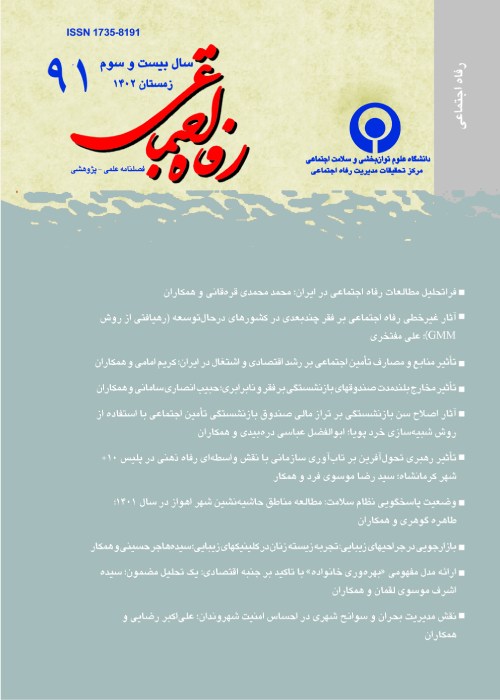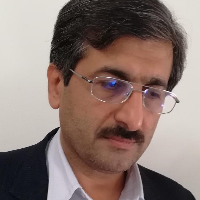The Causal Relationship between Poverty and Corruption in Developing Countries
Author(s):
Abstract:
Introduction
Poverty is one of the most dangerous social phenomena which could threaten economical، political، and cultural life of the nation. Considering that the incidence of poverty in developing countries is widespread and severe، paying lots of attentions seems necessary. On the other hand، corruption is a cause of poverty and it is a barrier for the successful eradication of poverty and may be with prevalence of corruption efforts for reducing the poverty is inconclusive as well as unlikely. The phenomenon of corruption is a persistent obstacle for efforts made by countries in the fields of politics، economy، and society to achieve their desired goals. Studies have shown that corruption exists in all countries، even in many developed countries. But this phenomenon in some developing countries where the structures are weak and vulnerable، is far more harmful; Because It has devastating effects on property rights، regulation and investment incentives and it Could reduce economic growth and thus Poverty expand over time. However، the poverty could be a cause of corruption.. Method
Therefore، this study is set out to investigate the Granger causal relationship between corruption and Poverty. It uses dynamic panel system GMM estimators، focuses on capability poverty by using human poverty index (HPI) since it portrays in a more accurate way the state of poverty، and is based on a sample of 120 developing countries during 1998-2006. the empirical findings suggest that corruption and poverty come together، with causality running in both directions. Findings
Poverty is associated with corruption in various ways and although the link between corruption and poverty is often noted، the question of whether a causal relationship between corruption and poverty (based on panel data models) exists or not، has received less attention. In other words، Most of the studies which have investigated the link between corruption and poverty may draw conclusions on causality in the form of models that only show correlation. Thus، the policy recommendation for fighting against poverty and corruption can simply be wrong. Conclusion
All in all، it is necessary to address the integrated strategy to reduce poverty and fight against corruption. In other words، the attempts to reduce poverty must be complemented by serious efforts to reduce corruption.Keywords:
Language:
Persian
Published:
Social Welfare Quarterly, Volume:12 Issue: 46, 2013
Pages:
33 to 64
magiran.com/p1107172
دانلود و مطالعه متن این مقاله با یکی از روشهای زیر امکان پذیر است:
اشتراک شخصی
با عضویت و پرداخت آنلاین حق اشتراک یکساله به مبلغ 1,390,000ريال میتوانید 70 عنوان مطلب دانلود کنید!
اشتراک سازمانی
به کتابخانه دانشگاه یا محل کار خود پیشنهاد کنید تا اشتراک سازمانی این پایگاه را برای دسترسی نامحدود همه کاربران به متن مطالب تهیه نمایند!
توجه!
- حق عضویت دریافتی صرف حمایت از نشریات عضو و نگهداری، تکمیل و توسعه مگیران میشود.
- پرداخت حق اشتراک و دانلود مقالات اجازه بازنشر آن در سایر رسانههای چاپی و دیجیتال را به کاربر نمیدهد.
In order to view content subscription is required
Personal subscription
Subscribe magiran.com for 70 € euros via PayPal and download 70 articles during a year.
Organization subscription
Please contact us to subscribe your university or library for unlimited access!



